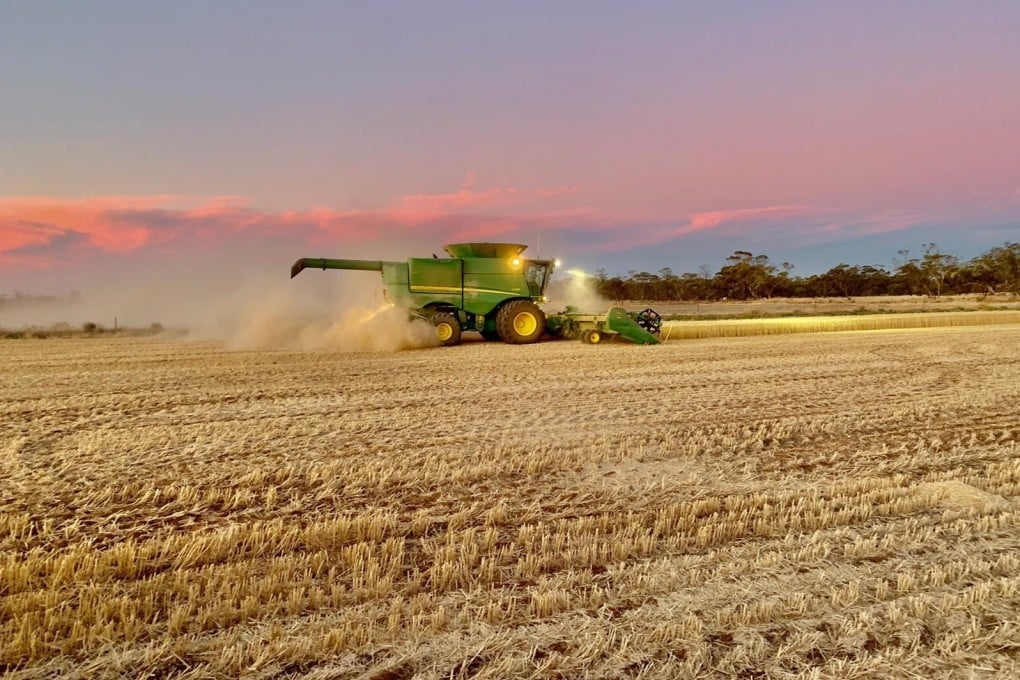China-Australia relations: farmer laments ‘mistake’ of depending solely on Chinese market as supply chains shift
- Exporters and governments enjoyed bountiful returns and strong demand from the Chinese market for years, but the free market can be unforgiving
- Some say writing was on wall long before the relationship soured, yet a ‘very poor business strategy’ kept Australian farmers almost exclusively tied to China

South Australian farmer Corey Blacksell said the biggest eye-opener for him last year was not so much the deteriorating relations between Australia and its biggest trading partner, but how Australia had become so complacent in its reliance on that one export customer: China.
This was, in part, because he had seen the writing on the wall for years. And he was not shy about raising his concerns – including on social media and directly to the state and federal governments – about Australia’s over-reliance on a single market. But those cries of concern appear to have fallen on deaf ears.
“It was probably a mistake that Australia, as a trading nation, elected to create a ‘monopoly’ end-user, which is the most dangerous way to be. Because when they withdraw from the market, you’ve actually lost all of your market,” he said.
“Why has there been such a single focus on China? It’s not about China, as such, but why such a focus on a single market? It is a very poor business strategy.”
He conceded that both exporters and governments enjoyed bountiful returns from premium prices and strong demand from the Chinese market over many years, but Blacksell said that governments – particularly at the state level – should not have directed their energy toward cultivating that market.